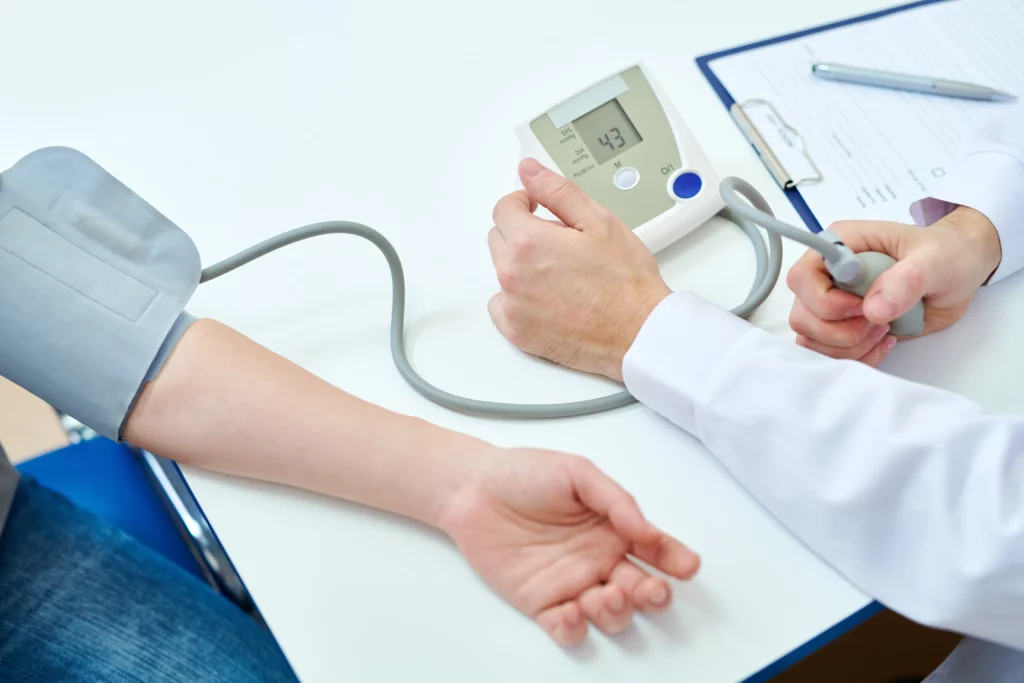Heart disease is the leading cause of death globally, accounting for over 17 million deaths each year. The good news is that many cases of heart disease can be prevented or delayed through lifestyle changes and early intervention. Here are some ways you can reduce your risk of developing heart disease.
Maintain a Healthy Weight
Being overweight or obese increases your risk of heart disease. Obesity can put more stress on your heart and increases the likelihood that you will develop hypertension, high cholesterol, and type 2 diabetes, which are all risk factors for heart disease.
Being underweight can also have adverse effects on your heart’s health. When the body does not have enough body fat, it can result in nutritional deficiencies, which can impact how well your heart functions. A lack of essential nutrients like iron, vitamin B12, and omega-3 fatty acids can cause anemia, which can put a strain on the heart. Additionally, low body weight can lead to decreased levels of good cholesterol, which helps maintain heart health. Being underweight can also cause a rapid heartbeat and increase the risk of heart disease and stroke.
Aim to maintain a healthy weight by engaging in regular physical activity and following a balanced diet that includes plenty of fruits, vegetables, whole grains, and lean proteins.
Exercise Regularly
Physical activity is essential for maintaining a healthy heart. Regular exercise can help reduce your risk of heart disease by improving cardiovascular health, controlling weight, and lowering blood pressure and cholesterol levels. Aim to get at least 30 minutes of moderate exercise each day, such as brisk walking, jogging, swimming, or cycling.
Stop Smoking
Smoking is one of the leading causes of heart disease. Quitting smoking can reduce your risk of heart disease and other serious health conditions, such as cancer and lung disease. Talk to your doctor about quitting smoking, and consider using nicotine replacement therapy or other smoking cessation aids to help you quit.
Control Your Blood Pressure
Keeping your blood pressure under control is one of the most important steps you can take to prevent heart disease. High blood pressure can damage the arteries, making them more prone to blockages and leading to a higher risk of heart attack, stroke, and other cardiovascular problems.
You can help control your blood pressure by making lifestyle changes, such as eating a healthy diet, engaging in regular physical activity, quitting smoking, and limiting your alcohol consumption. If lifestyle changes aren’t enough, your doctor may prescribe medication to help lower your blood pressure. Regular monitoring is essential to keep your blood pressure in check and reduce your risk of heart disease.
Reduce Stress
Chronic stress can increase your risk of heart disease by raising your blood pressure, causing inflammation, and contributing to unhealthy behaviors, such as overeating, smoking, and sedentary behavior. To reduce stress, try to engage in stress-management techniques, such as deep breathing, meditation, or yoga. You may also find it helpful to practice mindfulness or take breaks throughout the day to relax and recharge.
Limit Your Alcohol Consumption
Excessive alcohol consumption can increase your risk of heart disease by raising blood pressure, increasing cholesterol levels, and contributing to obesity. If you drink alcohol, it is important to do so in moderation, which means no more than one drink per day for women and no more than two drinks per day for men.
Eat a Healthy Diet
Eating a healthy diet is important for maintaining a healthy heart. A diet that is rich in fruits, vegetables, whole grains, and lean proteins can help reduce your risk of heart disease by controlling weight, reducing blood pressure, and improving cholesterol levels. Additionally, it is important to limit your intake of added sugars, saturated and trans fats, and sodium.
Manage Other Health Conditions
Conditions such as diabetes, high cholesterol, and sleep apnea can increase your risk of heart disease. It’s important to manage these conditions through lifestyle changes, such as following a healthy diet and engaging in regular physical activity, and with the help of medication, as prescribed by your doctor.
Avoid Exposure to Air Pollution
Air pollution has been linked to an increased risk of heart disease. Try to limit your exposure to air pollution by staying indoors on days with high air pollution levels, using air purifiers, and avoiding areas with high levels of traffic.
Get Routine Checkups!
Regular check-ups with your doctor can help identify and treat risk factors for heart disease, such as high blood pressure and high cholesterol, before they lead to more serious health problems. Your doctor may also recommend tests, such as cholesterol tests and electrocardiograms, to assess your risk of heart disease.
At DFW Family Clinic, you can have your annual physicals as well as specialized screenings and treatments for chronic disease management, weight management, and diabetes management. Schedule your appointment to take care of your cardiovascular health and enjoy an active and healthy life.









